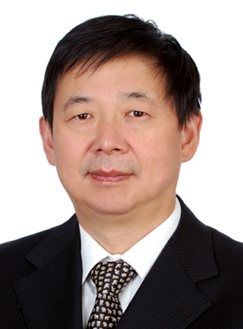
Title:Synthesis of Zeolite Catalysts for Requirements of Industrial Applications
Speaker:Professor Feng-Shou Xiao
Time:Oct. 10, 2017. Tuesday2:00-3:00 pm
Place:BUCT Library Center Conference Room
Abstract:
Green Synthesis of Zeolites: Zeolites have been widely used as heterogeneous catalysts in petrochemical and fine chemical industry, but their syntheses are not sustainable because of using costly and toxic organic templates and a huge amount of water under hydrothermal conditions. In our recent works, it is focused on sustainable routes for synthesis of zeolites, including (i) organotemplate-free, (ii) solvent-free, and (iii) combing organotemplate-free and solvent-free approaches to synthesize zeolites. In these cases, both organic templates and a large amount of polluted wastes could be effectively avoided in the industrial applications.
Stable Mesoporous Zeolites & Zeolite Nanosheets. To reduce the mass transfer, it is rationally designed mesoporous zeolites and zeolite nanosheets recently, but the costly templates for their syntheses and relatively low stability strongly limit their industrial applications. In our cases, it is developed alternative routes for synthesis of mesoporous zeolites and zeolite nanosheets, including (i) the use of low-cost organic templates and (ii) organotemplate-free synthesis. e.g., stable SAPO-11 nanosheets with 10 nm in thickness were successfully synthesized using low-cost polyhexamethylenebiguanidine hydrochloride as a mesoporogen. After Pt loading (0.5 wt.%), the Pt/N-SAPO-11 catalyst exhibits higher selectivity for the isomers and lower selectivity for cracking products than conventional Pt/SAPO-11 catalyst in the hydroisomerization of n-dodecane.
Core-Shell Structured Metal@Zeolite Composites. It is well known that zeolites have excellent shape selectivity and metal nanoparticles exhibit excellent catalytic activities. In this talk, it is also reported a generalized strategy for preparation of excellently selective and highly active catalysts by encapsulation of metal nanoparticles inside of microporous zeolite crystals as core-shell structures (metal@zeolite), where the metal nanoparticles serve as catalytically active sites and the zeolite micropores control the product selectivity by changing molecular diffusion and molecular sieve effect..
Biography:
Prof. Feng-Shou Xiao received his B.S. and M.S. degrees in the Department of Chemistry, Jilin University, China. From there he moved to the Catalysis Research Center, Hokkaido University, Japan, where he was involved in collaborative research between Dalian Institute of Chemical Physics & Jilin University, China with Hokkaido University, Japan. He was a Ph.D. student there for two years and was awarded his Ph.D. degree at Jilin University in 1990. After postdoctoral work at the University of California at Davis, USA, he joined the faculty at Jilin University in 1994, where he became a full professor in 1996 and distinguished professor in 2003. Since the end of 2009, Dr. Xiao as a distinguished professor has moved to Department of Chemistry, Zhejiang University. His research is mainly focused on zeolites, porous materials, and catalysis. Currently, he is secretary for serving Asia-Pacific Association of Catalysis Societies and associate editor for serving Industrial and Engineering Chemistry Research in ACS.